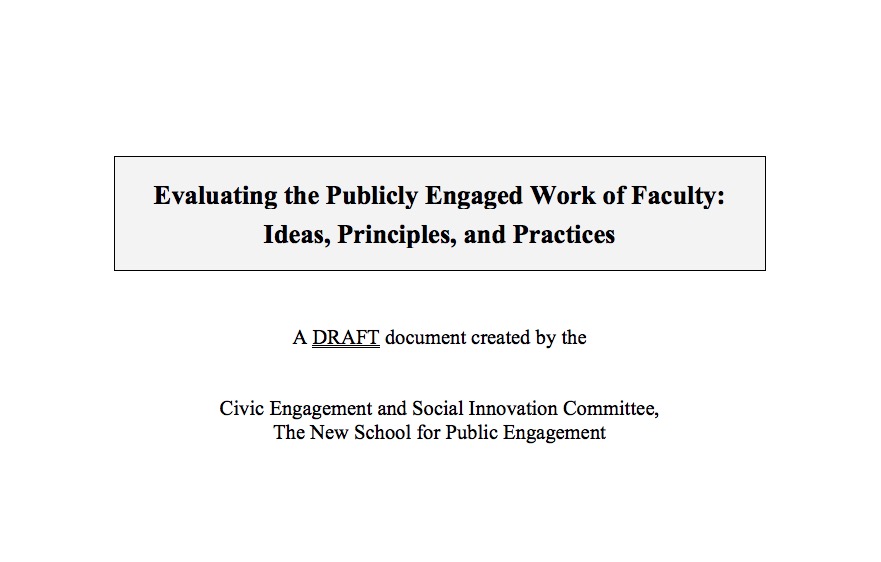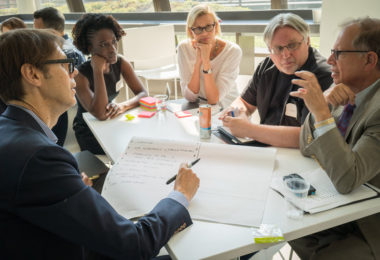
The New School for Public Engagement is dedicated to the integration of civic, liberal, and professional learning for the advancement of a just and plural society. Faculty and students in the division undertake a wide range of scholarly and creative practices that build new knowledge, solve pressing social problems, produce innovative forms of culture, and generate new understandings of the world. The division embodies the founding principles of The New School–namely the search for creative forms of education to prepare students for democratic citizenship–and as such provides a crucial space within the university for experimentation.
Faculty members in NSPE work across a wide range of disciplines and fields and build new knowledge and understanding of the world through an array of forms. Some faculty contribute primarily in the domain of theory and basic research, while others connect and apply their work to communities, institutions, and multiple publics. Still others blend theory and practice as they develop and refine their work. All of these approaches to the production and dissemination of knowledge enrich our world and are crucial for the health of the division.
For those faculty members who choose to make public engagement a core part of their vocation, we need clear processes for crediting and evaluating their efforts. We also need to expand the communities of peer review beyond the traditional academic stable, so that the public work undertaken by faculty members can be judged by an appropriate range of experts. And we need to consider a wider range of artifacts as evidence of scholarly and creative productivity. This ultimate goal is to help faculty members realize the full potential of their scholarly and creative practices.
To be sure, the details will vary within and between the four schools, based on their different historical, institutional, and governance histories. Some programs maintain explicit language about the purpose and place of public engagement; other programs may include public engagement as one among many important themes. Some faculty members might see public engagement as a major arena of scholarly endeavor, while others may participate in this work rarely or never. The division has capacious shoulders, and must accommodate faculty at all points on this continuum. Thus, this document is intended not as a proscription, but rather to offer guidance and support.
Nevertheless, it is critically important to develop shared understandings, especially in the evaluation and reward of faculty. All faculty members who want to make public engagement a key aspect of their academic work should be afforded the means to demonstrate their accomplishments, and to have these valued as much as traditional modes. We need to establish some sense of “what counts” at the program, school, and divisional levels, and how faculty can document their work in public scholarship, civic engagement, and social innovation during the preparation of their dossiers.
Download full report here.

